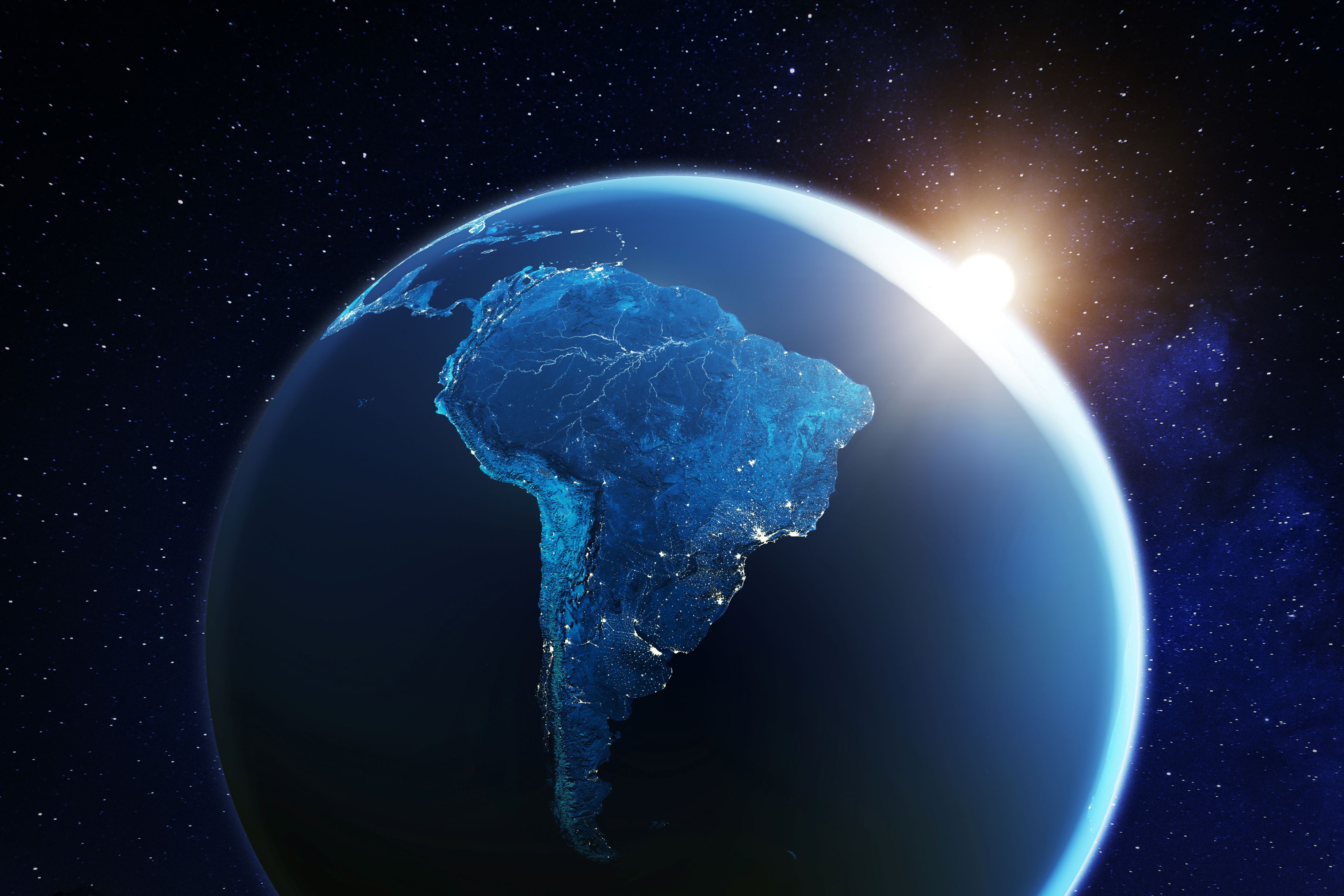
In the latest IOE&IT Daily Update round-up of Latin American trade news we cover a president-elect’s comments on the EU-Mercosur trade deal, Amazon nations reaching an agreement on preventing deforestation and the surprise victory of a controversial outsider in the Argentinian elections.
Mercosur changes ‘unacceptable’
The incoming president of Paraguay has raised concerns about the EU’s attempts to modify the long-awaited EU-Mercosur trade deal.
President-elect Santiago Pena told Reuters that the recent attempt by the EU to insert environmental protections into the agreement was “unacceptable”. In July, European officials offered an addendum to the draft treaty which contained stronger clauses on deforestation and the environment.
Pena said: “What the EU has to do is come clean about whether or not it wants to move forward with a free trade agreement. Today I question whether they have that genuine interest.”
Pena, who takes office tomorrow (15 August), singled out his country’s soy-bean exports as a likely casualty of any such clause.
As Paraguay is one of the four full members of Mercosur – along with Brazil, Argentina and Uruguay – Pena’s comments could further delay the introduction of the treaty.
Mercosur officials are said to be working on a response to the EU’s proposals, which the European Commission (EC) has said would address deforestation.
Amazon deforestation ban
The eight South American nations that share the Amazon have agreed to limit deforestation in the rainforest, but have stopped short of a complete ban.
The Amazon Cooperation Treaty Organization (ACTO) – formed of Brazil, Bolivia, Colombia, Ecuador, Guyana, Peru, Suriname and Venezuela – released the Belém Declaration last week after a two-day summit.
Named after the Brazilian city hosting the summit, the declaration contains 113 objectives and principles that political leaders say will limit deforestation. ACTO also said that the job of protecting the Amazon wasn’t theirs alone and appealed for financial support from industrialised nations.
However, the Guardian reports that a full ban on deforestation by the end of the decade was expected. Climate activists told the BBC that the declaration lacked concrete measures and that countries were left to pursue their own individual agendas on preservation issues.
Argentinean election
This weekend’s presidential primary election in Argentina has thrown up a surprise result. Before the election, Bloomberg reported that investors were confident that a pro-business winner would emerge as the frontrunner.
However, Javier Milei – a libertarian economist, former one-time congressman and TV personality – unexpectedly came first with 30.1% of the vote. He beat candidates from the centre-right opposition and the centre-left administration.
Since no clear winner emerged, the top two vote winners will advance to a final round on 22 October.
Milei, who has received the endorsement of former Brazilian president Jair Bolsonaro, advocates for “extreme” austerity, dollarisation of the Argentinian economy and abolition of the central bank.
The former congressman will now face the centre-right’s candidate, former security minister Patricia Bullrich, in the second round. Both candidates have pledged to depart from the current administration’s economic policies.
Reuters notes that any incoming administration would decide the future of Argentina’s farming exports have to deal with inflation that has climbed as high 114%, and a $44 billion debt deal with the International Monetary Fund.
US and LatAm trade
US president Joe Biden has been criticised for not reaching out to build up trade ties with Latin America by members of his own party. Politico reports concern from some Democratic senators over a lack of outreach to South American leaders.
“I am so embarrassed when I meet these heads of state,” senator Bob Menendez told a recent senate committee meeting. He added that he couldn’t “tell them that they’re wrong” when they criticised US plans for working with Latin American nations.
Biden’s plan for US-Latin American trade - the Americas Partnership for Economic Prosperity – was launched in January this year but has received limited traction. Members of his administration are said to still be repairing diplomatic relations damaged by his predecessor Donald Trump.
Chilean exports
The Chilean trade promotion authority has said that its efforts to move away from a reliance on exporting lithium and copper are starting to pay off, with the agency reporting a 14.9% increase in the export of other goods in 2022.
ProChile, the Chilean government’s trade promotion agency, said that the exports of products other than lithium and copper rose by 14.9% last year when compared to 2021.
The agency said foods such as salmon and cherries were major benefactors of the government’s new export strategy, as were chemical products. Ignacio Fernández, director general of ProChile, said that the results showed his country was adapting to global trade trends despite challenging conditions.
President Gabriel Boric strengthened state control of the lithium industry in May of this year and has blocked the expansion of copper mines, citing environmental concerns.
Mining.com reports that Chile’s copper exports remain low and experienced a significant drop in the month of July.
